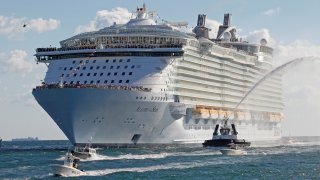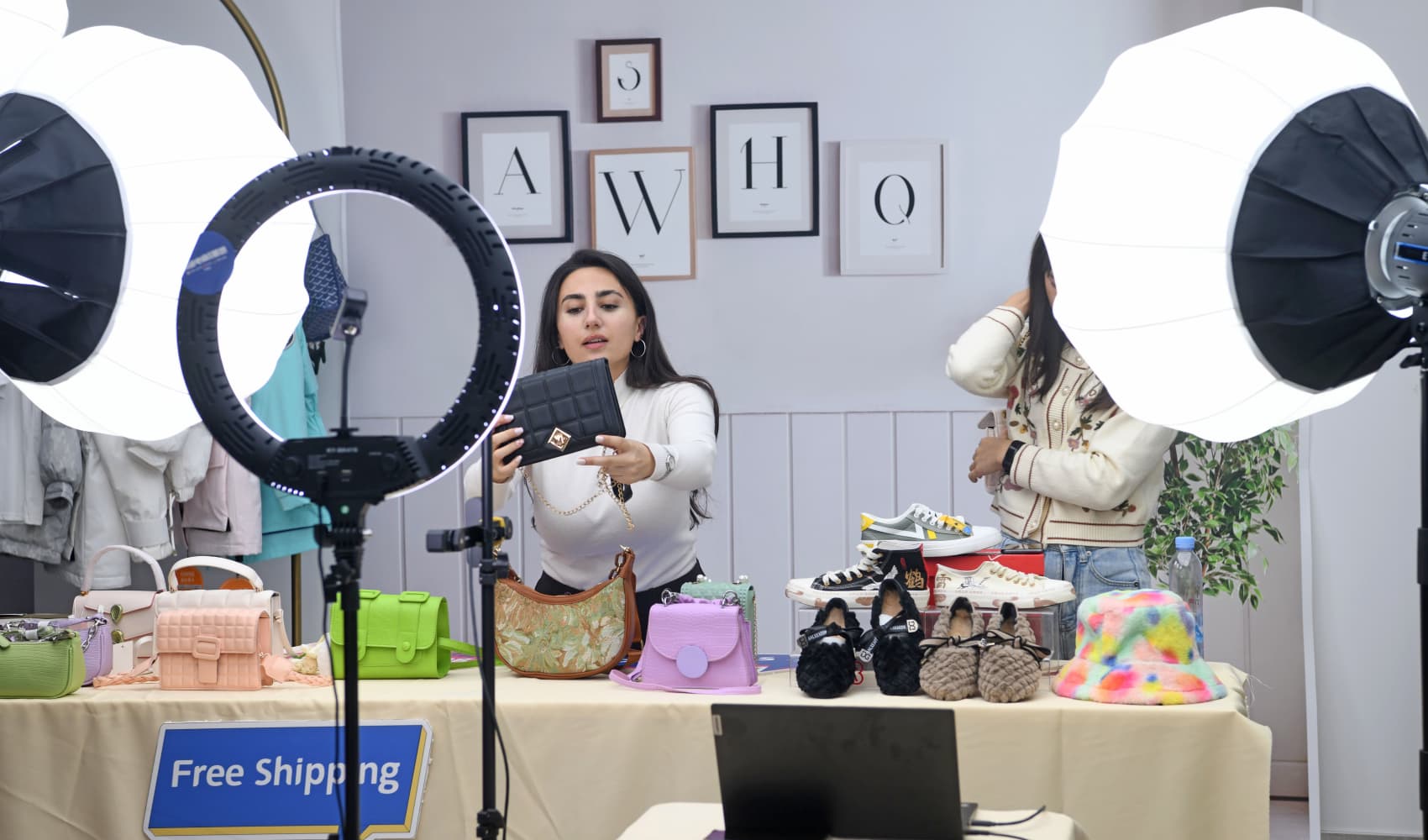
- The Federal Maritime Commission has been investigating cancellation policies of the cruise industry during the Covid pandemic as well as its safety protocols.
- An update on the findings will likely be available early this week, the group's commissioner, Louis Sola, said in an interview.
- Given the strict safety protocols in place on cruises, Sola said, “I feel much safer on a cruise ship than I do flying.”
The delta variant is fueling a resurgence in Covid-19 infections in the United States just as the cruise line industry ramps up operations after months of being sidelined.
Watch NBC6 free wherever you are
While bookings for voyages next year have been robust, the industry knows conditions can deteriorate rapidly, raising the possibility that trips could be canceled.
At least one cruise line has reported that bookings for near-term voyages have softened as coronavirus cases have risen. And that was before the Centers for Disease Control and Prevention warned on Friday that people in at-risk groups for Covid-19 complications should avoid taking cruises, regardless of their vaccination status. The new CDC guidance followed outbreaks of the virus on recent trips.
Get local news you need to know to start your day with NBC 6's News Headlines newsletter.
Federal Maritime Commissioner Louis Sola sat down last week with CNBC to discuss his Fact Finding 30 investigation into the cancellation policies of the cruise industry during the pandemic. Sola launched the investigation in August 2020 in an effort to amend the FMC’s regulations concerning cruise line nonperformance and refunds for canceled voyages.
In his proposal, Sola suggested that if a sailing is canceled or a passenger boarding is delayed by 24-plus hours for any reason besides a governmental order or declaration, a full refund must be paid within 60 days following a passenger’s refund request. If the sailing is delayed or canceled by a government declaration or order, a full refund must be paid within 180 days.
The exclusive interview also touched on other topics, including Covid safety protocols.
Money Report
CNBC: The cruise industry is back sailing and your investigation into cruise line policies on canceled voyages during the pandemic is due out. When will we hear more on the rule-making process addressing cruise line performance and refunds? When will we see an update on this?
Sola: We should be getting an update probably by early this week. Every cruise line had a different policy so we wanted to create a standardized system as had been done with the airline industry. I hope this update will be out to the public shortly.
Once published, the public will have 60 days to comment on the proposal. Then, the commission will consider the comments, adjust the language if necessary, and take a final vote. It's important to note, every single vote on Fact Finding 30 has been unanimous. I appreciate taking the lead on this investigation.
CNBC: Out of all the cruise states, Alaska was hurt the most on a per capita basis. How much of a hit did the state take since you released your report in the spring? This is money that will never be recouped.
Sola: We are looking at a loss of $3.3 billion in revenue and over $1 billion paid in unemployment during the pandemic. The local governments and state governments suffered an estimated $55 million in lost taxes.
When I visited Alaska, I went to the union house, where they were sweeping the floor. Florida's loss was the most in numerical terms, but no state was hurt more on a per capita basis than Alaska.
I don’t think people realize how great the impact was from the loss of salaries not paid, goods not sold, services not rendered, taxes not collected. When we stopped sailing, it was a logistical and economic nightmare. One billion in unemployment for a state with only 700,000 residents is alarming.
CNBC: We are seeing more delta virus outbreaks on cruise ships like Carnival Cruise, where 27 vaccinated people tested positive. In a recent interview, Norwegian Cruise Line Holdings CEO Frank Del Rio said the delta variant surge is hitting customer confidence, and causing some to cancel. How does the cruise industry assure the public cruising is safe?
Sola: It’s true, we are experiencing occasional breakthrough cases on board ship. One ship, like you pointed out, recently had 27 vaccinated people who tested positive. But the ship was, and we are, prepared for such contingencies.
The most important thing we have is the agreement between the cruise industry and health officials. We have a plan. What we are seeing here is by establishing herd immunity on a ship, the process works correctly.
We also have a plan in place if we have a serious condition. We now have the ability to get that person off the ship immediately. It was a catastrophe during the very early days of the pandemic where we kept these passengers on the ships.
We have similar health and safety protocols from both the Cruise Lines International Association and Passenger Vessel Association. They were both a big help in the initial stages of the Fact Finding 30.
A couple of cruise lines have gone beyond those measures. They, as an industry, have a good consumer standard across the board. The No. 1 measure we are mandating is 95% of the passengers on the vessel are vaccinated. Herd immunity is key.
I feel much safer on a cruise ship than I do flying. I’m not knocking flying, but you are interacting with more people of unknown vaccination status in an airport. You are breathing in recycled air in extremely close quarters.
CNBC: What about Disney Cruise? They have a targeted passenger population that cannot be vaccinated because of their age. How do they reach herd immunity?
Sola: That is a concern they are attempting to address. They have a market segment that makes it difficult. But [Disney] has some experience in this area gained from their theme park operations. Perhaps they will reduce the number of people on board so they have more vaccinated to achieve herd immunity.
CNBC: You have been vocal on the distribution of surplus vaccines to seafarers and our neighbor cruise ports in the Caribbean and Bahamas. How are things progressing?
Sola: I have written two letters to President [Joe] Biden on this important issue. I also went directly to the governors of Florida, Texas and Alaska and they have donated surplus vaccines. We are working with the consul generals of the embassies of the Dominican Republic, Turks and Caicos, and the Bahamas. We have seen some difficulty getting vaccines because of HHS requirements but these vaccines are reaching mariners.
CNBC: There was a recent incident of Royal Caribbean passengers not being allowed on a vessel because they were not vaccinated. Is it the responsibility of the passenger to go onto the cruise line's website to see requirements?
Sola: It is up to the consumer to know the Covid policies of each cruise line. It's very important for them to realize 99% of cruise traffic is international and all countries have their own protocols on vaccination. It is up to the discretion of the foreign destination if they want passengers and crew vaccinated before they arrive in their country. The cruise lines are very good at spelling out their requirements. It's just like when you go on the website of an airline. They have their requirements posted as well. This needs to be considered as part of the boarding process.
CNBC: The CDC also has a color code system monitoring the status of a vessel. There is a lot of information out there for consumers.
Sola: We live in an information age and we have found the color code system to be very useful. We have been using this color code system for the last 18 months. The industry is doing what it can to ensure health safety awareness.
Bottom line, if you get sick and you are vaccinated the symptoms should be mild. If you are not vaccinated, you will get the proper care.
Responding to the sick was the issue at the beginning of the pandemic for the cruise industry. The industry now has a detailed plan. We as a nation have to live with Covid in all aspects of life. Being prepared is key to this.






